
True Face of Birth: Pregnant women are second class citizens (March 2, 2008)
There are several examples of court-ordered obstetrical interventions — usually cesarean sections — where a woman’s fundamental right to determine what happens to her own body is blatantly disregarded. Even more disturbing, a large percentage of physicians and lawyers support forcing procedures on pregnant women despite their expressed refusal.

Article from the NY Times Science section touting the many benefits of doulas
If any of these links have expired, please drop me a note so that I can fix it: laborlove@gmail.com
Website Created, Owned and Designed by Catherine Stewart-Lindley © 2013 at Homestead™

Article from ScienceDaily Science News section — Laboring women supported by a doula (with no pain relief medication) experienced the same levels of pain as women who received epidural analgesia, both during and after labor. Additionally, there were no differences in a laboring woman's ability to cope with pain whether she had an epidural or the continuous emotional support of an experienced doula.
Article from ScienceDaily Science News section — Epidurals given during labor and birth are associated with decreased rates of breastfeeding, both in the short and long term.
Article from ScienceDaily Science News section — Natural daily body rhythms may influence the effectiveness of spinal-epidural pain medication for women in labor, according to new research from Wake Forest University Baptist Medical Center.
Article from ScienceDaily Science News section — The take home message is that doctors need to tell obese women that electing to have labor induced can place them at higher risk of longer labor and could increase the possibility that they will need a cesarean section. In addition, doctors may want to wait for labor to begin spontaneously rather than choosing to induce labor early in obese women, given these risks.
Intercourse Not A Risk Factor For Premature Labor (Sep. 11, 1997)
Article from ScienceDaily Science News section — Some expectant parents fear that intercourse during pregnancy may cause premature labor. But a study by researchers at the University of Illinois at Chicago College of Medicine found that there is no direct and clear link between sexual intercourse and spontaneous labor.
Smoking During Pregnancy Can Put Mothers And Babies At Risk (February 23, 2008)
Article from ScienceDaily Science News section — Pregnant women who suffer from the high risk condition pre-eclampsia, which leads to the death of hundreds of babies every year, are putting the lives of their unborn children at significantly increased risk if they continue to smoke during pregnancy.
Pregnant Smokers May 'Program' Their Kids To Become Smokers (Nov. 29, 2006)
Article from ScienceDaily Science News section — Pregnant smokers may "program" their children to become smokers, suggests research published in Tobacco Control. The authors base their findings on over 3,000 mothers and their children, who were part of a long term pregnancy study in Brisbane, Australia (MUSP) in 1981.
Doulas deliver help for birthing moms (August 6, 2007)
Part birthing coach, part mother's assistant, doulas are showing up in more delivery rooms than ever before.
Elective Cesarean Sections Too Risky, WHO Study says (January 11, 2010)
Despite medical advances and increasing access to improved obstetric care across the globe, surgical childbirths are still more risky for both mother and baby, according to an ongoing international survey by the World Health Organization (WHO).
Five ways to avoid a C-section (February 23, 2007)
CNN's Elizabeth Cohen reports that babies delivered by C-section are at higher risk for complications, including breathing problems.






Home Birth is a Labor of Love (February 19, 2008)
Article from MSN Health & Fitness sction — A relaxing and personal delivery ends with a healthy baby and a home-cooked meal.
Pioneering midwife touts 'orgasmic birth (February 18, 2008)
Some women can experience a sort of birth ecstasy, says Ina May Gaskin. A midwife who never formally studied nursing, Gaskin has helped to bring home birth and lay midwifery back from the brink of extinction in the U.S. An obstetrical maneuver she learned from the indigenous Mayans of Guatemala has made it into scientific journals and medical textbooks, and her insistence on the rights of a birthing mother empowered a generation of women to demand changes from doctors and hospitals.

Birth, The American Way (January 28, 2008)
One third of babies in this country are delivered by Caesareans. A graphic new documentary asks why. Amid the controversy over what constitutes an ideal birth experience, doctors, researchers and natural-birth advocates agree: C-sections save lives when medically necessary. But defining medical necessity is complicated. Normal-birth advocates cite a "cascade of interventions" caused by hospitals' practice of using the drug Pitocin to stimulate labor.
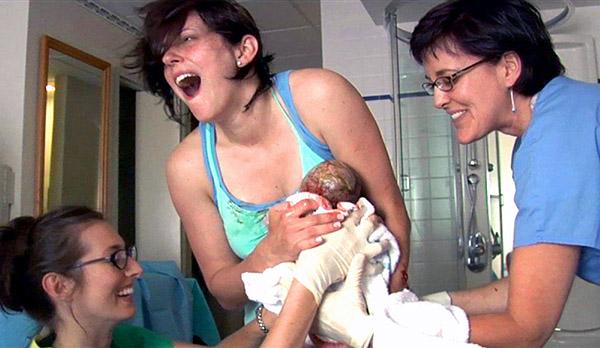
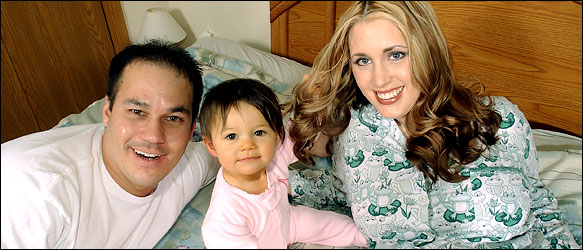
And Baby Makes Three in One Bed (December 29, 2005)
Dr. Richard Ferber, the country's most famous infant sleep expert, has relaxed his admonition against parents sleeping with their babies. Dr. Ferber's shift has sparked celebration among some parents, who have faced criticism for defying the American dictum that babies should learn to sleep alone.
(October 8, 2008)
Childbirth is the leading reason for hospitalization in the USA and one of the top reasons for outpatient visits, yet much maternity care consists of high-tech procedures that lack scientific evidence of benefit for most women. Reducing expensive techniques such as C-sections and increasing low-cost approaches such as childbirth assistants called doulas would improve mothers' and babies' health while cutting costs.
Infant Formula Makers Called On To Remove BPA (October 31, 2008)
Bisphenol A News (November 10, 2008)
Toxic Plastics Chemical in Infant Formula (August 8 2007)
Laboratory tests of canned infant formula conducted by the Food and Drug Administration (FDA) reveal that a plastics chemical called bisphenol A (BPA) leaches from metal can linings into formula. The amount of BPA ingested by some bottle-fed infants exceeds the doses that caused serious adverse effects in animal studies.
Caffeine and Pregnancy: How Risky? (April 15, 2008)
Dr. De-Kun Li of Kaiser Permanente on what pregnant women should know about caffeine.
TIME
Study Links Abortion and Preemies (December 18, 2007)
A comprehensive study finds that abortion and miscarriage lead to low birth weight and preterm birth. But is 40-year-old data still relevant today?
TIME
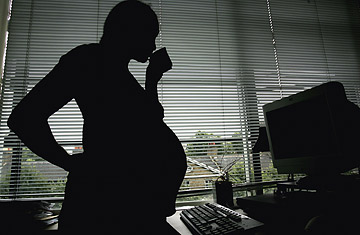
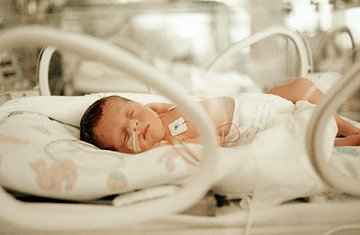

Baby, You’re Home (November 13, 2008)
Many women are wary of hospital births, both because of a patient’s limited control over the process and because of the growing frequency of C-sections (use of the procedure increased by 50 percent nationwide from 1996 to 2006, to nearly one in three births, according to the National Center for Health Statistics).
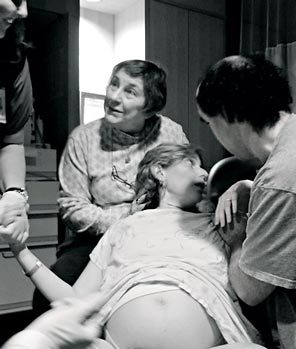
Looking to nature, Penny Simkin practices the art of delivery (March 24, 2008)
Known as the mother of the doula movement, Simkin has trained thousands of these caregivers to provide physical and emotional support for women during birth - the only intervention scientifically shown to decrease time in labor (by 25%) as well as reduce Cesarean-section rates by a third.
Melamine Traces Found in U.S. Infant Formula (November 25, 2008)
The FDA said Tuesday that it had discovered the toxic chemical melamine in infant formula made by an American manufacturer, raising the possibility that the problem was more extensive in the United States than previously thought.

New Research Shows Why Every Week of Pregnancy Counts (December 23, 2008)
New research shows that those last weeks of pregnancy are more important than once thought for brain, lung and liver development. A study in the American Journal of OBGYN calculated that for each week a baby stayed in the womb, there is a 23% decrease in problems such as respiratory distress, jaundice, seizures, temperature instability and brain hemorrhages.
Vitamin D Deficiency Is Tied to C-Sections (December 30, 2008)
The researchers studied 253 births at a Boston hospital from 2005 to 2007. After controlling for other variables, the scientists found that women with low blood levels of vitamin D were almost four times as likely to have an emergency C-section as those with normal levels.

During labor, the continued presence of a doula – an experienced non-medical female companion who provides continuous labor support – has significant beneficial effects, even when they have their male partner or other family member with them, according to a new study. Cesarean delivery rates decreased by 12%, the need for an epidural dropped by 11%, and the need for a cesarean after induced labor decreased by 46% when a doula arrived.
Pregnant women whose labor stalls while in the active phase of birth can reduce health risks to themselves and their infants by waiting out the delivery process for an extra two hours, according to a new study.

Orgasmic Birth (January 3, 2009)
Joyous, sensuous and revolutionary, Orgasmic Birth brings the ultimate challenge to our cultural myths by inviting viewers to see the emotional, spiritual, and physical heights attainable through birth. Witness the passion as birth is revealed as an integral part of woman's sexuality and a neglected human right.
The Trouble With Repeat Cesareans (Feb 19, 2009)
Much ado has been made recently of women who choose to have cesareans, but little attention has been paid to the vast number of moms who are forced to have them. More than 9 out of 10 births following a C-section are now surgical deliveries.
TIME
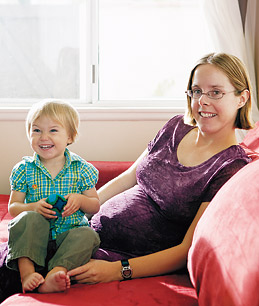
Caesarean babies four times more likely to have breathing problems (December 12, 2008)
Babies delivered by planned Caesarean section are up to four times more likely to have breathing problems than those born naturally, a large study suggests.
The slogan of this new ad campaign by Spanish company, Flex, is “Tu cama, el lugar más importante del mundo,” or “Your bed, the most important place in the world.” This commercial spotlights the home birth of Waira, daughter of Carolina and Nicholas Umpierrez of Barcelona, Spain. In the advertisement, they claim that their bed is special to them because it is where there son was born and they would like for their daughter to be born in the same bed.
Probable Carcinogens Found in Baby Toiletries (March 13, 2009)
More than half the baby shampoo, lotion and other infant care products analyzed by a health advocacy group were found to contain trace amounts
of two chemicals that are believed to cause cancer, the organization said.
The new "natural" Caesarean (April 4, 2009)
With more babies being born by Caesarean section, a new movement is campaigning to make the event a more "natural" experience
Afterbirth: It's What's For Dinner (July 3, 2009)
Most mammals eat their placentas. This is a humorous piece written by a husband about his wife's placental consumption.
TIME
Water Births Are Gentle on Baby and Ease Pain for Mom According to Studies from around the World (February 2, 2010)
Breaking from a culture where hospital births are the norm and Caesarean rates are the highest n the world, Brazilian supermodel Gisele Bundchen chose to deliver her son Benjamin in her own bathtub.
New Moms at Risk (March 4, 2010)
Why are a growing number of American moms dying shortly after giving birth? The US now ranks 34th in the world in maternal survival. California reports that maternal death during/just after childbirth has tripled in the last 10 years. Increased cesarean sections seem to be a major cause.
Eating, Drinking May Be OK During Labor (March 4, 2010)
There is little medical justification for telling women in labor not to eat or drink, a review of the research finds.

For the lastest and most up-to-date articles about birth in the news, please visit Labor of Love Childbirth Services Facebook page and "Like" us.
Women who use mobile phones when pregnant are more likely to give birth to children with behavioral and emotional problems, according to a study of more than 13,000 children.

Cell Phone Use in Pregnancy: Risks for Child (December 6, 2010)
Exposure to cell phones before birth and afterward may increase a child’s risk for developing certain behavioral problems, including hyperactivity, inattention, and problems getting along with peers, a study suggests.
Toxins and Pregnancy (December 14, 2010)
You're finally pregnant – and the world seems fraught with dangers. Here's a guide to help you navigate through the legitimate concerns and the baseless worries.
Birth in the News
Cesarean Deliveries Rise Alongside Rate of Induced Labor (August 2, 2010)
Many experts say cesareans are being performed too often, and in many cases for nonmedical reasons, putting healthy women and babies at undue risk of complications of major surgery. Among the women whose labor was induced, nearly 40% of cases were categorized as elective. In other words, there was no pressing medical indication for induction. Reducing the use of elective labor induction could lower the national C-section rate by as much as 20%.
TIME
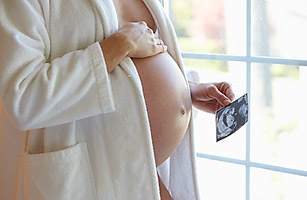
Induced labor may double the odds of C-section (June 21, 2010)
The rate of labor induction in this study -- at 44 percent -- was striking. Even among the 4,600 women in the study considered "low risk" for needing a labor induction -- because they were not post-term, were free of diabetes, high blood pressure and obesity, and the fetus was not overly large -- 29 percent had their labor induced.
Six months of breast milk best for babies (June 22, 2010)
Babies are less likely to develop a respiratory or gastrointestinal infection if they are exclusively breastfed for at least 6 months, according to a Dutch study.
Women with low risk pregnancies who choose to birth at home have a lower risk of severe complications than women who plan a hospital birth, finds a new study.

Low-income women who chose to deliver their baby at a birthing center under the care of a certified nurse-midwife had the same or better birthing experience as women under traditional care with a hospital-based obstetrician, according to a new study in Health Services Research.

Some of My Best Friends Are Germs by MICHAEL POLLAN (May 15, 2013)
Our resident microbes appear to play a critical role in training and modulating our immune system, helping it to accurately distinguish between friend and foe and not go nuts on, well, nuts and all sorts of other potential allergens. Some researchers believe that the alarming increase in autoimmune diseases in the West may owe to a disruption in the ancient relationship between our bodies and their “old friends” — the microbial symbionts with whom we coevolved.
Arsenic in Our Chicken? by NICHOLAS D. KRISTOF (April 4, 2012)
Two new scientific studies suggest that poultry on factory farms are routinely fed caffeine, active ingredients of Tylenol and Benadryl, banned antibiotics and even arsenic. One study, just published in a peer-reviewed scientific journal, Environmental Science & Technology, found that feather meal routinely contained a banned class of antibiotics called fluoroquinolones. These antibiotics (such as Cipro), are illegal in poultry production because they can breed antibiotic-resistant “superbugs” that harm humans. Already, antibiotic-resistant infections kill more Americans annually than AIDS, according to the Infectious Diseases Society of America.
Doctors have been recommending bed rest to women with high-risk pregnancies for centuries. Every year, about one out of five pregnant women in the United States is placed on bed rest, usually to help prevent complications like premature birth, hypertension and miscarriage. But in a group of studies published in the latest issue of Obstetrics & Gynecology, researchers argue that confining pregnant women to bed for long periods is not a practice based on good evidence – and it may potentially be harmful.
Pollution’s Link to Birth Weight (February 11, 2013)
Exposure to air pollution during pregnancy raises the odds of having low-birth-weight babies, a large international study has found. Researchers combined data on more than 3 million full-term singleton births in 14 health centers in nine countries to establish the impact of air polluted with particulate matter less than 10 micrometers in diameter. Previous studies have linked air pollution and adverse pregnancy outcomes.
Antidepressants Can Raise Blood Pressure During Pregnancy (April 9, 2012)
Though the drugs are commonly prescribed to pregnant women, there has not been much research on the effect they can have on a mother’s health. The new study, published in The British Journal of Clinical Pharmacology found that women taking antidepressants of any kind had a 53 percent greater risk of high blood pressure. Those who were taking Paxil, which belongs to the most commonly prescribed class of antidepressants, known as selective serotonin reuptake inhibitors, or SSRI’s, saw their risk rise even higher, by 81 percent.
Iodine in Bread Not Enough for Pregnant Women (June 18, 2013)
Research from the University of Adelaide shows that iodized salt used in bread is not enough to provide healthy levels of iodine for pregnant women and their unborn children. The study has prompted calls for pregnant women to take iodine supplements. Iodine deficiency is recognized by the World Health Organization as the most common preventable cause of brain damage in the world.

American Way of Birth, Costliest in the World (June 30, 2013)
Maternity care and childbirth cost far more in the United States than in other developed countries, but studies show that their citizens do not have less access to care during pregnancy than Americans. In the Uited States, charges for delivery have about tripled since 1996, according to an analysis done for The New York Times.
Study Finds Benefits in Delaying Severing of Umbilical Cord (July 10, 2013)
In most hospital delivery rooms, doctors routinely clamp and sever the umbilical cord less than a minute after an infant’s birth, a practice thought to reduce the risk of maternal hemorrhaging. But a new analysis has found that delaying clamping for at least a minute after birth, which allows more time for blood to move from the placenta, significantly improves iron stores and hemoglobin levels in newborns and does not increase the risks to mothers.
Study: “BPA-Free” Plastics Leach Endrocrine-Disrupting Chemicals (March 08, 2011)
In a new study for the journal Environmental Health Perspectives, researchers found that most plastic products leach endocrine-disrupting chemicals—and it was true even for products labeled “BPA-free.”
TIME

